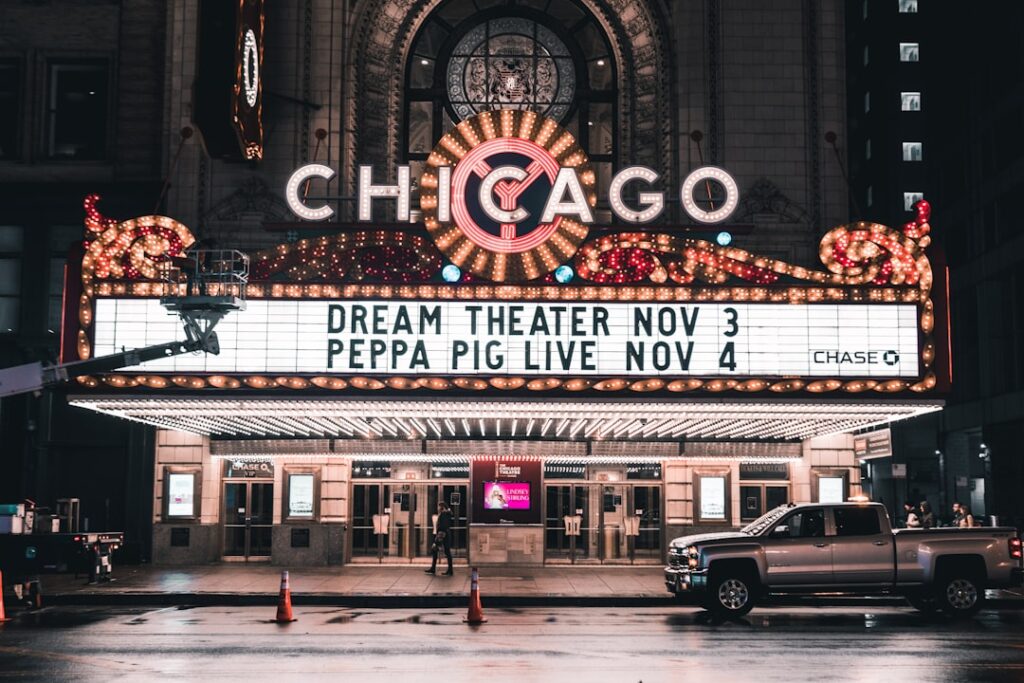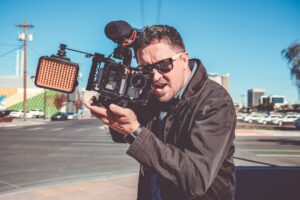AI is making significant strides in television production, enhancing the efficiency and creativity of TV shows. One example of AI in television is the use of algorithms to analyze audience data and predict viewers’ preferences. This data-driven approach allows producers to tailor content to specific demographics, increasing the chances of a show’s success. Additionally, AI is being used to automate tasks such as video editing and post-production, saving time and resources.
While AI offers numerous advantages in television production, there are also potential drawbacks and limitations to consider. One concern is the risk of over-reliance on algorithms, which may lead to a lack of diversity in content. If shows are solely based on data analysis, there is a risk of losing originality and creativity. Furthermore, there are ethical considerations regarding privacy and data protection when using AI to analyze audience preferences.
Synthetic Television: The Creation of AI-Generated Films and Shows
AI-generated films and shows are created using machine learning algorithms that analyze vast amounts of existing content to generate new material. This process involves training the AI model on a dataset of films or TV shows and then using it to generate new scenes or episodes based on patterns it has learned. The advantage of using AI to create content is that it can produce material at a much faster rate than human writers or directors.
However, there are limitations to AI-generated content. While AI can generate scenes or episodes, it may struggle with creating compelling narratives or complex character development. Additionally, there is a risk of AI-generated content lacking originality and being too formulaic. Despite these limitations, AI-generated films and shows have already made their mark in Hollywood, with examples such as “Sunspring” and “Zone Out” receiving critical acclaim.
Automation in Filmmaking: How AI is Changing the Production Process
AI is also transforming the production process in filmmaking, automating tasks that were previously time-consuming and labor-intensive. For example, AI can be used to analyze scripts and provide insights on potential improvements or changes. It can also assist in location scouting by analyzing images and identifying suitable filming locations. Additionally, AI can automate aspects of post-production, such as color grading and sound editing.
The advantages of using AI in filmmaking are numerous. It saves time and resources by automating repetitive tasks, allowing filmmakers to focus on more creative aspects of the production process. AI can also enhance the quality of the final product by providing insights and suggestions for improvement. However, there are potential drawbacks to consider, such as the risk of over-reliance on AI and the potential loss of jobs for human workers in the industry.
AI in Scriptwriting: The Use of Machine Learning to Create Compelling Stories
AI is being used in scriptwriting to assist writers in creating compelling stories. Machine learning algorithms can analyze vast amounts of existing scripts to identify patterns and generate new ideas. This can be particularly useful for generating dialogue or developing characters. Additionally, AI can provide insights on story structure and pacing, helping writers refine their scripts.
The advantages of using AI in scriptwriting are that it can save time and provide writers with new perspectives and ideas. However, there are limitations to consider. While AI can generate dialogue or suggest plot points, it may struggle with creating nuanced characters or capturing the subtleties of human emotions. Furthermore, there is a risk of AI-generated scripts lacking originality and being too formulaic. Despite these limitations, AI-generated scripts have already been used in Hollywood, with examples such as “Sunspring” and “It’s No Game” receiving attention.
AI in Special Effects: How Artificial Intelligence is Enhancing Visual Effects
AI is enhancing visual effects in films by automating and improving various aspects of the process. For example, AI can be used to generate realistic CGI (Computer-Generated Imagery) by analyzing real-world images and applying that knowledge to create virtual objects or environments. Additionally, AI can assist in the process of rotoscoping, which involves separating foreground elements from the background in a scene.
The advantages of using AI in visual effects are that it can save time and improve the quality of the final product. By automating certain tasks, such as rotoscoping, AI allows visual effects artists to focus on more creative aspects of their work. Furthermore, AI can generate realistic CGI more efficiently than traditional methods. However, there are limitations to consider, such as the risk of over-reliance on AI and the potential loss of jobs for human visual effects artists.
The Rise of AI Actors: The Emergence of Synthetic Actors in Hollywood

AI actors are created using machine learning algorithms that analyze vast amounts of existing footage to generate realistic performances. This involves training the AI model on a dataset of performances by human actors and then using it to generate new performances based on patterns it has learned. The advantage of using AI actors is that they can be available 24/7 and can perform tasks that may be dangerous or physically demanding for human actors.
However, there are limitations to using AI actors. While they can generate realistic performances, they may struggle with capturing the nuances and subtleties of human emotions. Additionally, there are ethical considerations regarding the use of AI actors, such as the potential loss of jobs for human actors and the question of whether AI-generated performances should be eligible for awards. Despite these limitations, AI actors have already made their mark in Hollywood, with examples such as “Virtual Influencer” and “AI: The Somnium Files” gaining attention.
The Impact of AI on the Film Industry: How Artificial Intelligence is Disrupting Traditional Business Models
AI is disrupting traditional business models in the film industry by changing the way films are produced, distributed, and consumed. For example, AI can analyze audience data to predict the success of a film and inform marketing strategies. Additionally, AI can personalize content recommendations for viewers, increasing engagement and retention. Furthermore, AI can automate aspects of the production process, reducing costs and increasing efficiency.
The advantages of AI in the film industry are numerous. It can improve decision-making by providing insights based on data analysis. It can also enhance the audience experience by personalizing content recommendations. However, there are potential disadvantages to consider. For example, there is a risk of over-reliance on algorithms, which may lead to a lack of diversity in content. Additionally, there are ethical concerns regarding privacy and data protection when using AI to analyze audience preferences.
Ethical Considerations: The Debate Surrounding the Use of AI in Hollywood
The use of AI in Hollywood raises various ethical concerns that need to be addressed. One concern is the potential loss of jobs for human workers in the industry. As AI becomes more prevalent in various aspects of filmmaking, there is a risk that human workers will be replaced by machines. This raises questions about the responsibility of filmmakers and studios to ensure that workers are not left unemployed or marginalized.
Another ethical concern is the question of ownership and copyright when it comes to AI-generated content. If an AI model generates a script or a film, who owns the rights to that content? Should AI-generated content be eligible for copyright protection? These are complex questions that need to be addressed to ensure fair and equitable practices in the film industry.
The Future of AI in Hollywood: Predictions and Possibilities for the Film Industry
The future of AI in Hollywood is full of possibilities and potential developments. One prediction is that AI will continue to play a significant role in various aspects of filmmaking, from production to distribution. As AI technology advances, we can expect more sophisticated algorithms that can generate compelling narratives, create realistic visual effects, and even perform as synthetic actors.
Another possibility is the integration of AI with virtual reality (VR) and augmented reality (AR) technologies. This could create immersive experiences for viewers, allowing them to interact with AI-generated characters or explore virtual worlds. Additionally, AI could be used to personalize content even further, creating customized films or TV shows based on individual preferences.
In conclusion, AI is revolutionizing Hollywood in various ways, from television production to scriptwriting, special effects, and the creation of synthetic actors. While there are advantages to using AI in the film industry, such as increased efficiency and creativity, there are also limitations and ethical considerations that need to be addressed. As AI technology continues to advance, we can expect further developments that will shape the future of the film industry. By understanding the impact of AI on Hollywood, we can better navigate the opportunities and challenges that lie ahead.
If you’re interested in exploring the impact of AI in movies, you might want to check out this fascinating article titled “Television Magazines and Newspapers Being Replaced by AI” on aitv.media. It delves into how artificial intelligence is revolutionizing the entertainment industry, including the creation of AI-generated content and the potential implications for traditional media outlets. It’s a thought-provoking read that sheds light on the evolving landscape of media and technology. Read more



